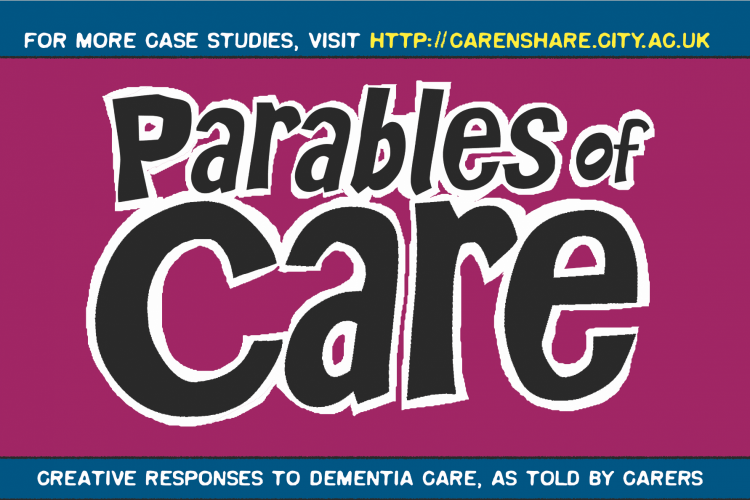
Neil Maiden, Professor of Digital Creativity in the Faculty of Management at the Cass Business Business and co-founder of the Centre for Creativity in Professional Practice at City, University of London.
Neil Maiden is Professor of Digital Creativity in the Faculty of Management at the Cass Business Business and co-founder of the Centre for Creativity in Professional Practice at City, University of London.
Neil directed research that led to the innovative Care’N’Share application, which is available publicly to support creative and collaborative care of older people with dementia.
I asked Neil some questions related to Parables of Care.
The Care’N’Share website provides users with access to good care practices in residential, live-in, domiciliary, acute, day service and family care. What was the personal and/or professional motivation for developing Care’N’Share, and what got you interested in dementia care?
Neil Maiden: The original motivation was professional. One of our projects was seeking a domain and partners to explore digital support for creativity and reflective learning in the health sector. Due to various last-minute machinations in the consortium, we began to work with a residential care organisation, and our team was exposed, for the first time, to the needs and challenges of older person social care.
The response of the research team was interesting, and overwhelmingly positive. Team members could seek the immediate and personal benefits of their technology work on care.
Of course, over time, many of us have relatives who have become older, and the motivations for the development of our tools have become more personal.

You also worked on CarePlus, ‘an interactive digital solution for collecting care quality information for residential homes’ (2016). How did that project relate to Share ‘N’ Care?
NM: There are no direct connections between the CarePulse and Care’N’Share tools, apart from the word ‘care’. However, the research work that led to tools such as Care’N’Share established our team as researchers and designers in the older person care sector. That experience and reputation established the links that led to the CarePulse tool.
You and your team found indication of usability issues in the care sector. How can User-Centred Design activities help contributing for better usability?
NM: Delivering digital technologies into the care sector is challenging, and usability is a major source of challenges. The challenges associated with developing tools that older people with conditions such as dementia can use are obvious, however designing for care professionals with little time or motivation to use technologies has also proven to be difficult. So user-centred design can help, as long as it recognises the priorities of stakeholders and the scarcity of resources available to participate in these design processes.
Parables of Care is an attempt to communicate health care information employing comics, a visual medium related to scenarios and storyboards, which are UCD activities. What were your thoughts on Parables of Care as a publication?
NM: I think that Parables of Care is fantastic. First, it exploits and makes available good care practice stories – stories that were hard-won from care practitioners, and makes them available to others. Second, it renders the stories simple to access. Third, the comic format engages different types of readers – including kids and teenagers – who might not be otherwise interested in care.
–
Parables of Care can be downloaded as a PDF file, under a Creative Commons Attribution-NonCommercial 4.0 International License, from City Research Online: http://openaccess.city.ac.uk/18245/.
If you live in the UK you can request printed copies at no cost here.

